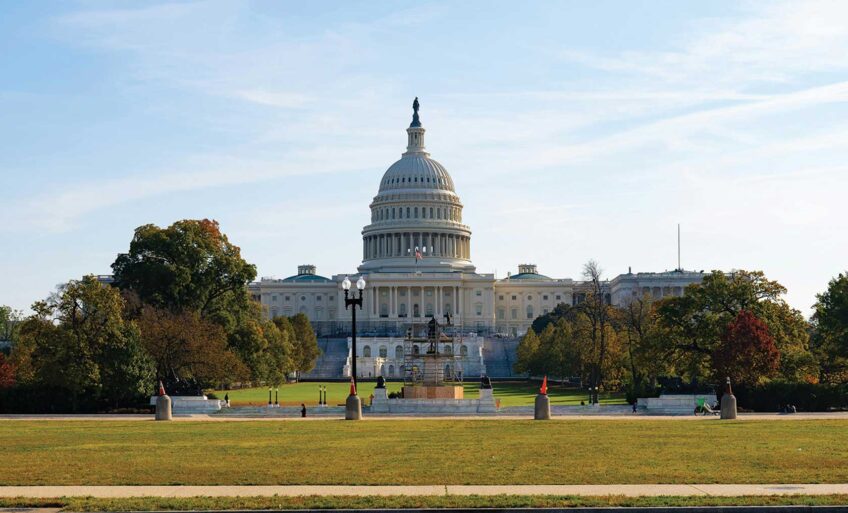As Congress debates a bipartisan border security bill, the Congressional Black Caucus (CBC) is failing to protect the 18 million Black Americans it represents, even as provisions for migrants in sanctuary cities strain community resources. Baffled by the reticence, I contacted the offices of 25 of the 60 members, as a professor of American history following the issue.
Specifically, I inquired about support for a House bill, and its companion in the Senate, that seek to “direct the Department of Homeland Security to provide employment authorization for eligible asylum applicants.” Also, about a second House bill that would provide work authorization and funds to pay for migrant social services.
The proposals were part of the bipartisan discussions on border security. They were publicly supported by the 12-member Democratic delegation of New York City, including Senate Majority Leader Chuck Schumer, House Minority Leader Hakeem Jeffries and four members of the CBC.
The plan released by the bipartisan Senate group, if enacted, would allow migrants to work while awaiting a decision on asylum claims, which can take years. It would create a pool of cheap labor to compete with vulnerable American workers in retail, construction and hospitality, among others.
I inquired of the CBC members whether they support work authorization for migrants, and if so, would they demand safeguards to prevent employers from substituting migrants for American workers? In addition, whether they support federal funding for the provision of homeless shelters, affordable housing units and medical care, and would they demand safeguards to prevent agencies from substituting migrants over needy Black Americans?
None of the representatives responded — including Congresswoman Ayanna Pressley — but I remain open to their answers.
Understand that Black labor encounters depressed wages, underemployment, unemployment and workforce discouragement historically; recently, the community is dealing with the diversion of public facilities to migrants. While our challenges involve more than migrant competition, the level of immigration is a factor that the government can control.
The effects of immigration — legal and illegal — on Black America are well-documented: The U.S. Civil Rights Commission concluded in 2010 that illegal immigration harmed Black wages and employment. The study “Immigration and the Economic Status of African-American Men” concluded, “As immigrants disproportionately increased the supply of workers in a particular skill group, the wage of Black workers in that group fell, the employment rate declined, and the incarceration rate rose.” The Center for Immigration Studies found that immigration undercuts marginalized American workers even during low unemployment.
Construction is one major industry of displacement. For instance, the CBC backed President Biden’s infrastructure legislation with the expectation of thousands of good-paying jobs for their people on highway, bridge, tunnel, and public building renovations. Such projects will require the hiring and training of thousands of skilled workers.
Yet, the problem for Black labor is its historic displacement due to union racism and contractor preference for immigrants. The racial demographic in the industry is 60% white, 30% Hispanic, and 5% Black American, according to the U.S. Bureau of Labor Statistics.
In New York City, the construction industry employed 374,000 people in 2020 — 53% of whom were immigrants — even as Black men experienced the highest unemployment rate. In Boston, Black labor is largely excluded from construction due to union and contractor bias, according to Travis Watson in “Union Construction’s Racial Equity and Inclusion Charade.”
In agriculture, Black workers in Mississippi were paid less than migrants. The U.S. Labor Department required 44 farms to compensate $850,000 in back wages and fines to 161 Black workers in 2023, according to Fortune Magazine.
Meanwhile, Roxbury residents watched in frustration as Gov. Maura Healey revoked community access to a state-owned recreational center. It was converted to a shelter for 400 migrants — even though Healey could have selected available facilities in white areas. In Chicago, Black residents sued city authorities over similar acts of “taking from Peter to feed Paul.”
CBC members must step up on behalf of its base. Its silence has exasperated local leaders like T. Willard Fair of the Urban League of Greater Miami, who bemoaned, “How can any Black politician in good conscience advocate for a more expansive immigration policy that would continue to do us harm?”
Roger House is associate professor of American studies at Emerson College and the author of “South End Shout: Boston’s Forgotten Music Scene in the Jazz Age.”






